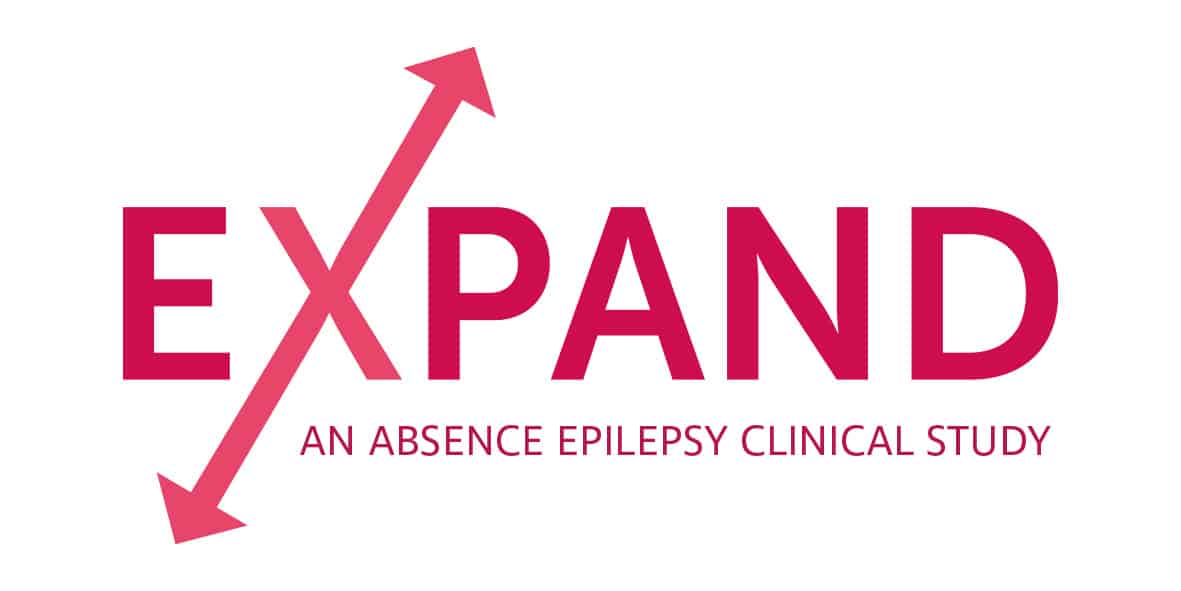How We Finally Received an Absence Epilepsy Diagnosis for Our Son
This article is sponsored and co-developed by UCB Biosciences, Inc. in an effort to raise awareness of absence seizures and their EXPAND study, which is researching a potential new medication (investigational medication) for people with childhood absence epilepsy (CAE) or juvenile absence epilepsy (JAE).
Editor's Note
This article depicts Lily and her son Evan’s personal experiences with absence seizures. Pseudonyms have been used to protect the privacy of the author’s child.
Our son’s epilepsy diagnosis was a long time coming. My husband and I had never heard of absence seizures, sometimes called petit mal seizures, a common type of epilepsy characterized by a brief altered state of consciousness and staring episodes usually lasting between 10 and 45 seconds. Because Evan’s symptoms developed over time, it took us two years before we even started to consider that he might be experiencing seizures.
When he was about two years old, we noticed that Evan wasn’t sleeping. We had just moved our family across the country so we assumed, at first, that it was part of the transition. But the behavior continued — he was up multiple times during the night. He also started acting out. We have three other children, and none of us were sleeping.
I asked his school to complete an evaluation to see if he might have a sleep disorder, or obsessive-compulsive disorder, or Autism Spectrum Disorder. We really had no idea what was causing his symptoms, but we needed answers. We were all just so exhausted — Evan most of all.
We were struggling to manage his symptoms at home and our family’s life had been turned upside down. My husband and I both worked full-time so we tried to take turns sleeping, but it was impossible to keep up.
The school evaluation resulted in Evan being placed into a special education preschool program to support his social and emotional development. It wasn’t until his preschool teacher said, “We noticed that Evan just stares sometimes. Do you think maybe he could be having seizures?” I was shocked — it wasn’t something we had considered because we thought seizures meant shaking or jerking movements. We didn’t know that seizures could include staring. I brushed it off a little bit because I thought Evan was just zoning out at school.
But then he aged out of the program at age three and we were left with no support from the school, so I talked to our pediatrician about the possibility of seizures. Our pediatrician referred us to a psychologist who sent us home with sheets on parenting tips. I remember thinking, “We have three other children. They don’t act like this. This is not a parenting issue.” I knew that something more was going on and I just wanted to figure out what it was.
Around this time, Evan started having occasional loss of bladder control. We realized that he couldn’t make it to the bathroom in time so I thought he might have a bladder or urinary tract infection, which our doctor tested for and confirmed the test was negative.
About a year ago was when my husband and I first started noticing the more “common” signs of seizures. Evan would come into our room in the middle of the night and his whole body would be jerking. That was the first time I thought, “Oh, this seems like a seizure.”
We brought him to the walk-in clinic, where they told us we had to go to the emergency room, where he was finally admitted. The ER staff did an electroencephalogram (EEG), which measures electrical activity in the brain, to look for possible seizure activity.
The first EEG test came back negative for seizures, but only because the ER staff accidentally gave Evan an incorrect dosage of melatonin prior to the test, leading them to believe that he had a sleep disorder.
When I asked in the ER how we were supposed to manage a sleep disorder, I was told: “You just live with it.” I remember thinking, “We can’t live like this. Evan can’t live like this because his quality of life is horrible.”
Evan still wasn’t sleeping. He was having seizures at night, maybe every two to four minutes from around 11:00pm to 6:00am. He was exhausted and experiencing a lot of behavioral and emotional problems — he was irritable and aggressive with his siblings. I could tell that he just felt really crappy all the time.
It was also really stressful as a parent. Evan was like a toddler times one hundred. I felt like I couldn’t take my eyes off of him for a second, to make dinner or to check on our other children. We stopped going out as a family because it didn’t feel possible. We pretty much lived on Kraft macaroni and Tombstone frozen pizza for over a year. We were exhausted — everything felt impossible.
The ER referred us to a pediatric neurologist, but we had to wait six months for an appointment. That neurologist ordered a sleep-deprived EEG, which was positive for seizures and Evan was officially diagnosed with absence seizures. I remember feeling a major sense of relief because it was an answer: Evan’s symptoms were treatable and we could start to improve his quality of life.
I researched everything I could about absence seizures and I learned that they can be easy to miss. Absence seizures can be so brief that a child experiencing one could mistakenly be thought to be “zoning out” or daydreaming. Because of this, it’s common for loved ones to not recognize the child’s symptoms as seizures and seek medical advice.
Looking back now, we know that Evan’s staring or “zoning out” in school was probably absence seizures, but we had no idea at the time. It took us over two years to receive a diagnosis and we only recently have been able to get a full-night’s sleep as a family in the past few weeks. I think the chronic sleep deprivation was the hardest on all of us. When you have a baby, and you expect him to sleep after a year and then when it goes to four years, you think, “What?”
It’s been a really difficult journey, for Evan most of all. When I was searching for answers, I just wanted another parent to tell me, “My child didn’t sleep either, and this is what happened and what helped them.”
I searched for a support group to connect with other parents and found it hard to even find other parents who knew about absence seizures. So I’m hoping to be that parent that says, “What you’re going through is really hard. We’ve been through this and you’re going to figure it out and it’s going to get so much better.”
I’m a nurse and I had never heard of absence epilepsy before, so I think raising awareness is important. We are still trying to find a good doctor for Evan, who is able to provide guidance and insight into Evan’s condition while also deferring to us as his parents who care for him on a daily basis.
Once we were able to identify Evan’s symptoms as possible seizures, we were finally able to receive a diagnosis, which ultimately is the first step in getting his symptoms under control. I don’t feel like we’re there yet, but I have to believe that we will find symptom relief, for Evan’s sake and for our family’s.
A message from The Mighty: Treatment can be an important part of managing your child’s epilepsy symptoms. Prescription treatment is most often utilized to provide effective seizure control, although non-pharmacological treatments, surgery, and a ketogenic diet may be considered for some patients, depending on their type of epilepsy.¹ It’s estimated that about a third of people diagnosed with epilepsy live with uncontrolled seizures because no recommended and available treatment works for them.²᠈³ Clinical trials are a step in bridging this gap and getting new treatments available to the public.
A message from our sponsor: UCB’s EXPAND study is one clinical trial currently available for childhood and juvenile absence epilepsy. If you are interested in learning more, visit https://www.expandstudy.com/influencers.
References
¹ Epilepsy Basics. Centers for Disease Control and Prevention. https://www.cdc.gov/epilepsy/about/faq.htm. September 30, 2020. Accessed October 2022.
² The Epilepsies and Seizures: Hope Through Research. National Institute of Neurological Disorders and Stroke. https://www.ninds.nih.gov/health-information/patient-caregiver-education/hope-through-research/epilepsies-and-seizures-hope-through-research. July 25, 2022. Accessed October 2022.
³ Drug Resistant Epilepsy. Epilepsy Foundation. https://www.epilepsy.com/treatment/medicines/drug-resistant-epilepsy. October 05, 2020. Accessed October 2022.


